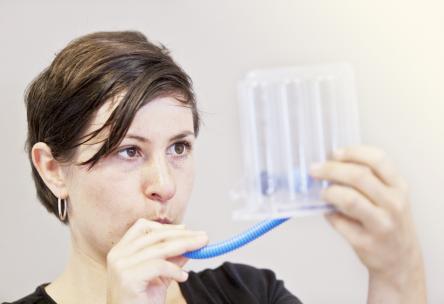Simple strategies to feel your best

Living with COPD means living with a condition that does not go away. But people who have COPD can and should take steps to keep it from becoming worse.
There are things you can do to help breathe well and feel your best, says William Goodman, M.D., MPH, a pulmonary care specialist at Dartmouth-Hitchcock Medical Center. Try these strategies to take charge of your health:
Quit smoking and avoid smoke. If you smoke, quit as soon as you can. This is the best thing you can do to help you live with COPD. Even if you don’t smoke, avoid secondhand smoke from others.
Know and avoid triggers. Besides smoke, other things in the air can cause your COPD to flare up. Dust mites are one common trigger. Wash sheets in hot water to get rid of them. Remove any perfumes, soaps, and cleaners with strong smells. Know your outdoor triggers, too, such as extreme temperatures or pollen. Stay indoors when pollution is high, says John Walsh of the COPD Foundation.
Eat to stay strong. Our bodies use calories for fuel. “A person with COPD needs between 430 and 720 calories per day just to do the work of breathing,” Walsh says. But be sure to get your calories from nutritious, healthy sources: fruits and vegetables, whole grains, lean proteins, low-fat dairy, and healthy fats such as olive oil.
Be active. “Take a walk, even if it’s just around the house,” says Dr. Goodman. You might think that being short of breath is a good reason not to be active. But that actually leads to being out of shape, which makes it harder to breathe. Ask your doctor what activities are best for you.
Protect yourself from germs. Colds and other illnesses are never fun, but they can be even harder for people with breathing problems. Wash your hands regularly and avoid big crowds when an illness is going around. Get a flu shot, and ask your doctor if you need a pneumonia vaccine.
Don’t blame yourself. Having COPD can be a source of many emotions: sadness, guilt, anxiety, and fear. “Accept responsibility, but try to understand that you can’t control everything in your life,” Walsh says. If you’re having a hard time coping, talk to your family, friends, or doctor.


